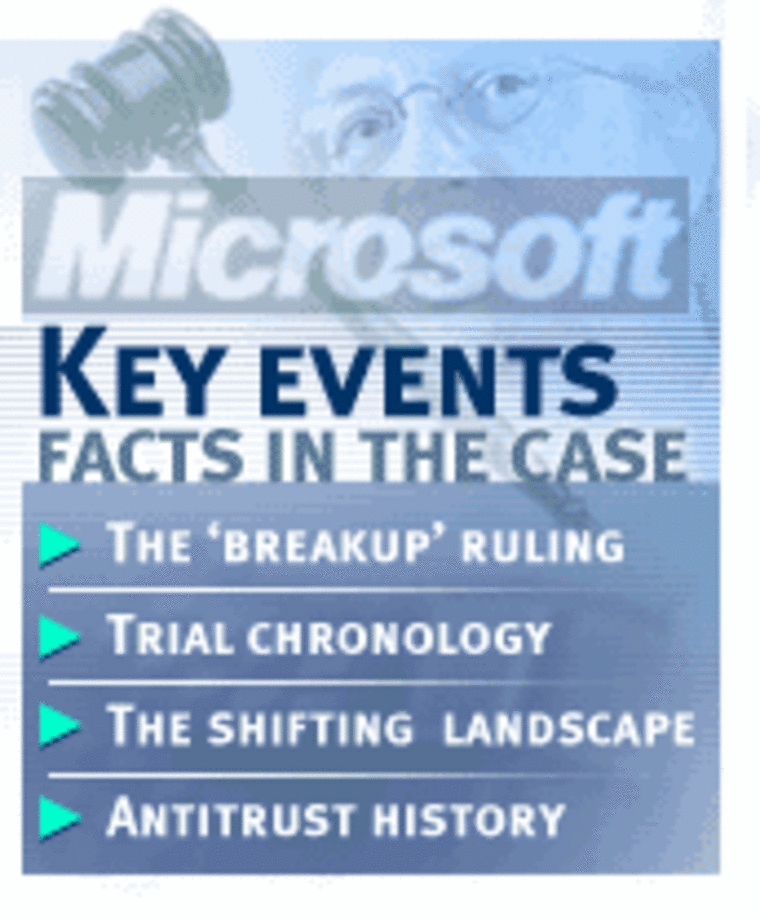West Virginia settled its antitrust claims Monday against Microsoft Corp., abandoning its appeal for tougher penalties against the software company. The pullout leaves just Massachusetts continuing the courtroom battle.
THE HOLDOUT STATES had argued together that a deal negotiated with the Bush administration was inadequate to constrain Microsoft. They were asking a federal appeals court to instruct the trial judge to impose tougher sanctions than those included in a settlement the judge approved among Microsoft, the Justice Department and 17 other states.
“This is an important step,” said Brad Smith, Microsoft’s general counsel. “It provides more momentum to resolve these antitrust issues. We’re down to one state.”
Monday’s settlement concludes West Virginia’s antitrust complaints and a separate class-action lawsuit on behalf of citizens in West Virginia. The company agreed to pay just over $300,000 in unpaid attorneys fees to the West Virginia attorney general’s office and to provide about $19.7 million in vouchers for free computer hardware and software, including products from Microsoft’s rivals.

In West Virginia, Boone County Circuit Judge E.E. Lee Schlaegel granted preliminary approval for the deal Monday.
“I am delighted that we have been able to reach such a generous settlement for the people of West Virginia,” Attorney General Darrell V. McGraw Jr. said. “These results will enable us to continue to protect and serve all consumers in West Virginia, not just those who purchased Microsoft products.”
The Massachusetts attorney general’s office said in a statement that “nothing has changed.”
“Massachusetts remains committed to this appeal and will see it through,” spokeswoman Sarah Nathan said. “We have always known that this would not be an easy path, but a necessary one to hold Microsoft accountable for its anticompetitive behavior and restore consumer choice and competition in the marketplace.”
The long-running court battle — the most significant antitrust case in a generation — culminated last November when U.S. District Judge Colleen Kollar-Kotelly accepted nearly all the Bush administration’s settlement provisions. She rebuffed arguments by nine states and the District of Columbia that tougher sanctions were essential to restore competition in the computer industry.
All the states except Massachusetts and West Virginia eventually joined in the settlement, which gives Microsoft rivals more flexibility to offer competing software features on computers running its flagship Windows operating system.
Courtroom arguments before the appellate judges are to begin in November.
© 2003 Associated Press. All rights reserved. This material may not be published, broadcast, rewritten or redistributed.